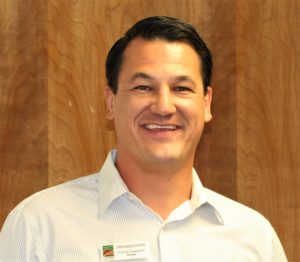Rural Coconino County residents who are experiencing no internet service in their areas have more options coming online.
Internet access is as powerful today as the transcontinental railroad was in the late 1850s. Internet is increasingly being viewed as an essential utility, and communities with access to the internet are benefiting with work-anywhere jobs, sell-anything anywhere markets, in-home education, telemedicine, and let’s not forget on-demand entertainment. The lack of connectivity can stagnate a local economy and divide a community. This is often called the Digital Divide, but there many partners who are focused on shrinking that divide.
Household internet access can be impaired by the sheer cost of the service. While most agree that they don’t get the internet service that they pay for when it comes to download and upload speeds, there are some that simply cannot afford to pay for it all. For households that are low-income, a program known as the Emergency Broadband Benefit can temporarily reduce the cost of accessing internet. The program provides a discount of up to $50/month on your broadband service (up to $75/month discount for those living on tribal lands) and a one-time payment up to $100 for a laptop, tablet or desktop computer. This program is available one per household. Check your household eligibility and sign up at getemergencybroadband.org. This program is paid for by the Federal Communications Commission (FCC) and is available now.
Rural Coconino County residents who are experiencing no internet service in their areas have more options coming online. There are many partners that provide service in hard-to-reach, rural areas using wireless and microwave technology. Coconino County has helped install multiple wireless solutions across rural towns in our county in partnership with local municipalities and community groups.
Microwave or wireless internet technology is widely available in rural areas with established microwave towers. Remember, this not about individual internet companies, but rather about the solutions that are in rural Coconino County, working now.
Ask your neighbors what service they are using and you will be surprised, as hundreds of residents are accessing high-speed internet via small satellite dishes on their home, very similar to satellite TV. When it comes to these satellite solutions, review the options as there are different type of satellite systems – high-orbit, low-orbit, and the costs vary. Once again, Coconino County has been partnering to test and help bring forth satellite internet technology to under-connected rural and tribal residents. Next time you have access to the internet, perform a web search for “low-orbit satellite internet providers” and you will come across the solutions that your neighbors are using.
The best internet is not free, it is fiber. Fiberoptic cables are the fastest, most reliable and most efficient ways to connect to and transfer information to the World Wide Web. The best internet options have historically been isolated to high-density population centers such as cities and metro areas. Coconino County has been actively pursuing a fiber cable project to connect residents along the Northern Arizona Corridor. The details of this project are available to the public here: Coconino Middle Mile: coconinocountybroadbandinitiative.com.
While a project of this magnitude takes tens of millions of dollars (usually invested by private telecommunications companies) to complete, the local, state and federal governments are now entering into the funding stacks of these multimillion dollar networks. If this sounds similar to the build-out of our nation’s railways, that is because it is. These arrangements are called P3’s (Private-Public-Partnerships) and Coconino County is actively working with partners to gain funding and rights-of-way to bring fiber to our northern corridor. The best internet solutions take considerable money, time and effective partnerships. This project is ambitious and needs the support of more dedicated partners in order to be realized, and that is part of the broadband challenge we are facing in Coconino County.
For questions and or more information, please feel free to reach out to me. FBN
By Chris Pasterz
Chris Pasterz is the economic development manager for Coconino County. He can be reached at 928-679-7114, 928-225-5650 or cpasterz@coconino.az.gov.







